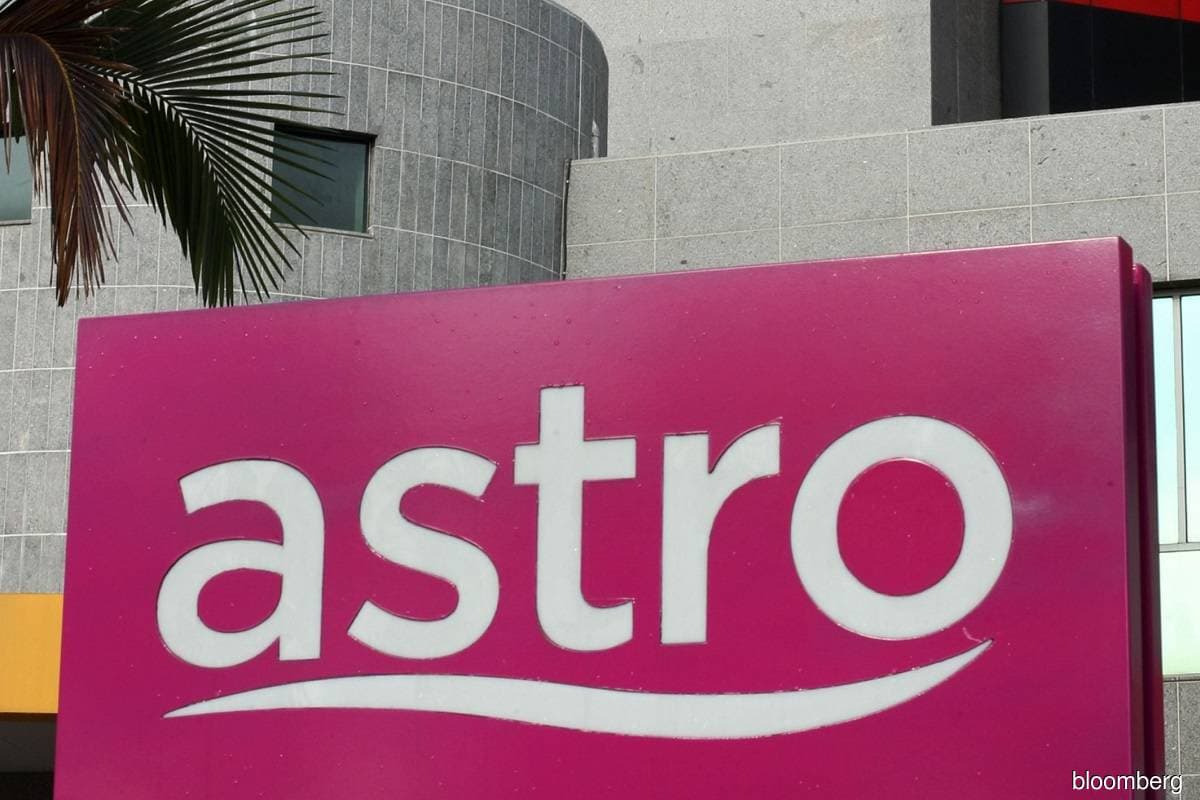
KUALA LUMPUR (Sept 17): Kenanga Investment Bank Research and MIDF Research are anticipating improved earnings for Astro Malaysia Holdings Bhd in the second half of the group's financial year 2021 (2HFY21) following the relaxation of the Movement Control Order (MCO).
According to Kenanga Investment Bank Research analyst Clement Chua, a stabilised television performance could see a recovery with the resumption of local content production and live international events.
"With the easing of movement control, the group looks to reinvigorate its customer acquisition strategies with local content production resuming. With heightened adoption of the Ultrabox (over 100k installed), the group is better positioned to implement newer customer experience and promote push video-on-demand consumption.
"The resumption of international and sports events (i.e. EPL) could also once again keep its viewers sticky and stay subscribed to Astro. Meanwhile, on the freemium front, NJOI is progressively introducing more prepaid packs to retain more budget-conscious viewers," Chua wrote in a note today.
To recap, Astro posted an 81% jump in net profit to RM133.65 million in 1HFY21, due to lower content costs and impairment of receivables, offset by higher merchandise costs, as a percentage of revenue.
In addition, quarterly revenue also grew 3.62% to RM1.09 billion versus RM1.05 billion recorded in the preceding quarter, mainly due to an increase in merchandise sales, offset by a drop in advertising revenue.
Following Astro's 1HFY21 earnings, Chua said Astro broadly met expectations with a normalised profit after tax and minority interests of RM227 million, making up 41% and 43% of Kenanga's and consensus estimates.
"We deem this to be broadly within expectations as we anticipate 2HFY21 earnings to make up for the lull in the MCO-depressed 1HFY21 period. An interim dividend of 1.5 sen was declared (year to date: 2.5 sen), also as anticipated," said Chua.
Kenanga maintains an "outperform" call on Astro with a target price (TP) of 83 sen. It said its TP is based on an unchanged nine times FY22E PER, which is 1.5 standard deviation below the stock's three-year mean.
"We believe we have sufficiently factored in [the] impact of coming economic adversities to the group's performance. Though our TP offers little capital upside, this is made up by its solid dividend yields of (about) 7% [even at our TP] which could attract medium-term investors. This should comfort investors who are also cautious of the upcoming content costs in FY22 and FY23 owing to the delay in global sporting events," said Chua.
Meanwhile, MIDF Research upgrades Astro to a "buy" rating from "neutral" previously as the research house expects the group's earnings to experience gradual recovery given the easing of movement restrictions since June has led to an increase in business activities.
"Aside from that, we like Astro for its fast response in adapting to the new normal, i.e. through the launch of Ramadhan e-bazaar, expansion in product offerings towards health and wellness, as well as premiering first run movies on their platform (recording a +40% year-on-year increase in pay-per-view buys for 1HFY21).
"Coupled with its continuous cost-optimisation efforts, we foresee these efforts to continue to assist in supporting the group's financial performance moving forward. All in, we are upgrading our call to 'buy'," said MIDF research team in a note.
Besides, MIDF said it is revising its target price upwards to 96 sen (from 86 sen) per share.
"We derive our TP by pegging a PER of 8.6x (previously 7.7x) — which is the group's two-year historical average — to its FY22 EPS of 11.2 sen per share," it said.
On earnings forecasts, both research houses said they maintain theirs.
Kenanga said it leaves its FY21E-FY22E earnings relatively unchanged, while MIDF maintains its earnings estimates at RM493.9 million-RM644.6 million for FY21-FY23.
At the time of writing, shares in Astro rose one sen or 1.24% to 81.5 sen, bringing its market capitalisation to RM4.22 billion. Some 2.33 million shares changed hands.